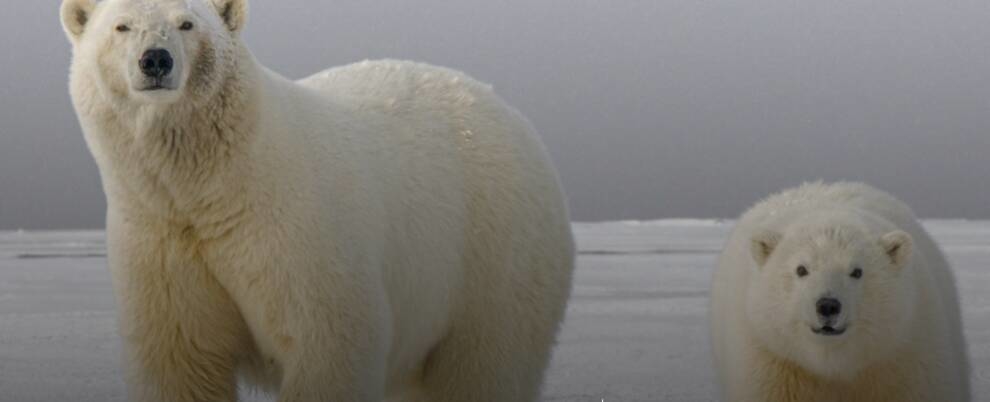We use essential cookies for the proper functioning of the website and additional ones to make interaction with the site as convenient as possible. It helps us personalize your user experience as well as obtain analytical information to improve the service.
If you agree to accept all cookies, click "Accept all"; if not, click "Only essential". To learn more, view the Cookie Policy.

Melting ice triggers migration of polar bears - scientists
Scientists said the number of polar bears in Alaska continues to decline. The main reason for the decline in the population is the melting of ice.
The decline in the population level of these animals has already reached 30%. The melting of ice in the territories previously occupied by polar bears makes them look for new places.
Based on research from past years, the researchers analyzed and found that the range in 1999-2016 was 64% more than in 1986-1998. The nature of the movement of polar bears across the territory of Alaska was obtained thanks to satellite data.
Scientists have concluded that the past few decades have literally forced animals to move north of traditional hunting grounds. After all, it was in those places that the usual amount of ice and food remained. This is how polar bears feel comfortable.
However, moving over large areas indicates that they need to expend a lot of energy. And this already threatens their survival. And if people want to preserve this population, then they should focus on the reasons for migration - the slowdown in global warming.
Scientists plan to conduct a more detailed study of the land. So they will be able to understand what the animals are guided by when moving to new habitats.
Researchers are systematically interested in the study of the migration of representatives of the animal world. All results, as a rule, are published in specialized journals so that as many people as possible can get acquainted with them. You can find such periodicals on the OXO website in the section Literature.
The decline in the population level of these animals has already reached 30%. The melting of ice in the territories previously occupied by polar bears makes them look for new places.
Based on research from past years, the researchers analyzed and found that the range in 1999-2016 was 64% more than in 1986-1998. The nature of the movement of polar bears across the territory of Alaska was obtained thanks to satellite data.
Scientists have concluded that the past few decades have literally forced animals to move north of traditional hunting grounds. After all, it was in those places that the usual amount of ice and food remained. This is how polar bears feel comfortable.
However, moving over large areas indicates that they need to expend a lot of energy. And this already threatens their survival. And if people want to preserve this population, then they should focus on the reasons for migration - the slowdown in global warming.
Scientists plan to conduct a more detailed study of the land. So they will be able to understand what the animals are guided by when moving to new habitats.
Researchers are systematically interested in the study of the migration of representatives of the animal world. All results, as a rule, are published in specialized journals so that as many people as possible can get acquainted with them. You can find such periodicals on the OXO website in the section Literature.


